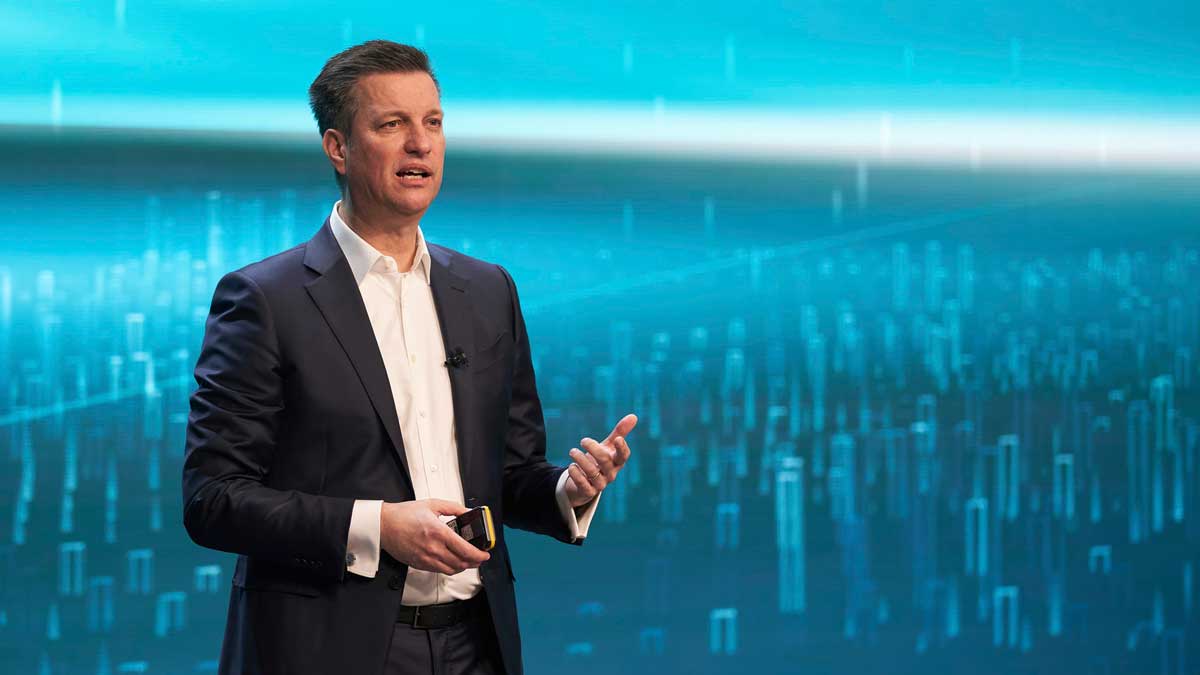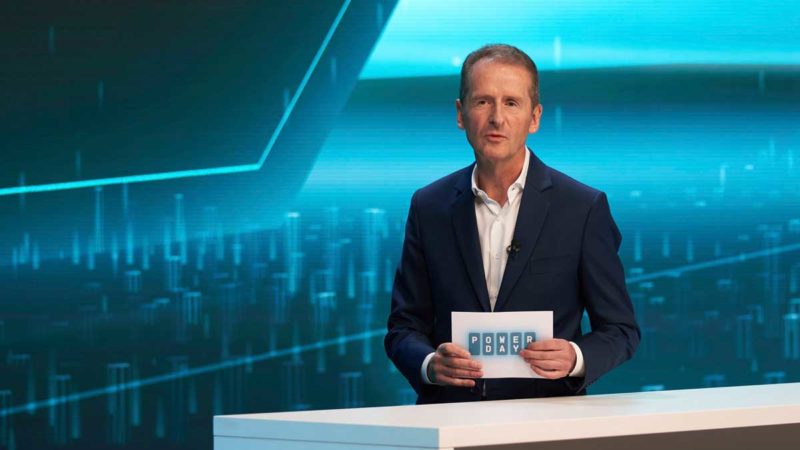German carmaker Volkswagen will build six battery factories, install 18,000 charging stations, and reduce the cost of making batteries by half, group CEO Herbert Diess said at the company’s Power Day on Monday (Europe time).
Announced by Diess on Twitter, in a move not unlike that of Tesla boss and rival Elon Musk when he fronted the California EV maker’s “Battery Day” in September, Power Day revealed the German carmaker’s latest play to dig its way out of the depths of the 2015 Dieselgate scandal and to the top of the EV market pile.
“Our transformation will be fast, it will be unprecedented,” Diess told Power Day, which also featured the CEOs of energy and fuel giants BP, Enel and Iberdrola.
“E-mobility has become our core business. We are now systematically integrating further stages in the value chain. We are securing a long-term pole position in the race for the best battery and the best customer experience in the age of zero-emission mobility.”
Integrating value creation means no longer purchasing battery cells from suppliers, but rather manufacturing them in-house.
Initially, two factories are to be built. One of these is to be built at the Salzgitter site. There is already a pilot plant for small series production and, recently, a test plant for recycling car batteries.
VW is building the second battery factory together with the Swedish company Northvolt in Skellefteå. Premium cells are to be manufactured in northern Sweden, and production is scheduled to start in 2023.
Spain was discussed as another location for a battery factory, and VW works council chief Bernd Osterloh is calling for a second location in Germany. Together, the factories are to produce cells with a total energy value of 240 gigawatt-hours per year.
“Together with partners, we want to put a total of six cell factories into operation in Europe by 2030 and thus guarantee security of supply,” said Volkswagen CTO Thomas Schmall.
“We aim to reduce the cost and complexity of the battery and at the same time increase its range and performance. This will finally make e-mobility affordable and the dominant drive technology.”

VW wants to achieve this through a unified prismatic battery cell to be introduced from 2023 and installed in 80 per cent of all the group’s electric vehicles by 2030.
In order to save battery costs, VW wants to use nickel and manganese for the cells in the volume segment and, if possible, do without the – more expensive – cobalt.
Batteries with nickel, manganese and cobalt should only be used for special applications with high performance. “On average, we will reduce the costs for battery systems to well below 100 euros per kilowatt-hour,” said Schmall.
The advances in battery technology are said to have an impact on the charging time. Today it takes 25 minutes to charge enough power to the ID.4 battery for a distance of 450 kilometres.
Volkswagen hopes to reduced this time to 17 minutes by 2025. If it can introduce the planned solid-state battery from Quantumscape, it hopes to reduce the charging time by a further 5 to 12 minutes.
By then, the charging infrastructure will also be significantly larger: VW has entered into partnerships with oil companies and electricity suppliers to set up additional charging stations.
Charging stations with an output of 150kw are to be set up at 4,000 filling stations operated by BP and its subsidiary Aral, most of them in Germany and Great Britain.
In Spain and Italy, VW will work with energy suppliers Iberdrola and Enel. Together with partners, VW wants to set up around 18,000 public fast charging points in Europe by 2025, a five-fold expansion of its existing charging network.
Northvolt claims to have received an order worth more than 14 billion US dollars over 10 years from VW. The company also announced that it would sell its stake in the Northvolt Zwei joint venture in Salzgitter to VW. At the same time, VW is increasing its stake in Northvolt.

Bridie Schmidt is associate editor for The Driven, sister site of Renew Economy. She has been writing about electric vehicles since 2018, and has a keen interest in the role that zero-emissions transport has to play in sustainability. She has participated in podcasts such as Download This Show with Marc Fennell and Shirtloads of Science with Karl Kruszelnicki and is co-organiser of the Northern Rivers Electric Vehicle Forum. Bridie also owns a Tesla Model Y and has it available for hire on evee.com.au.

